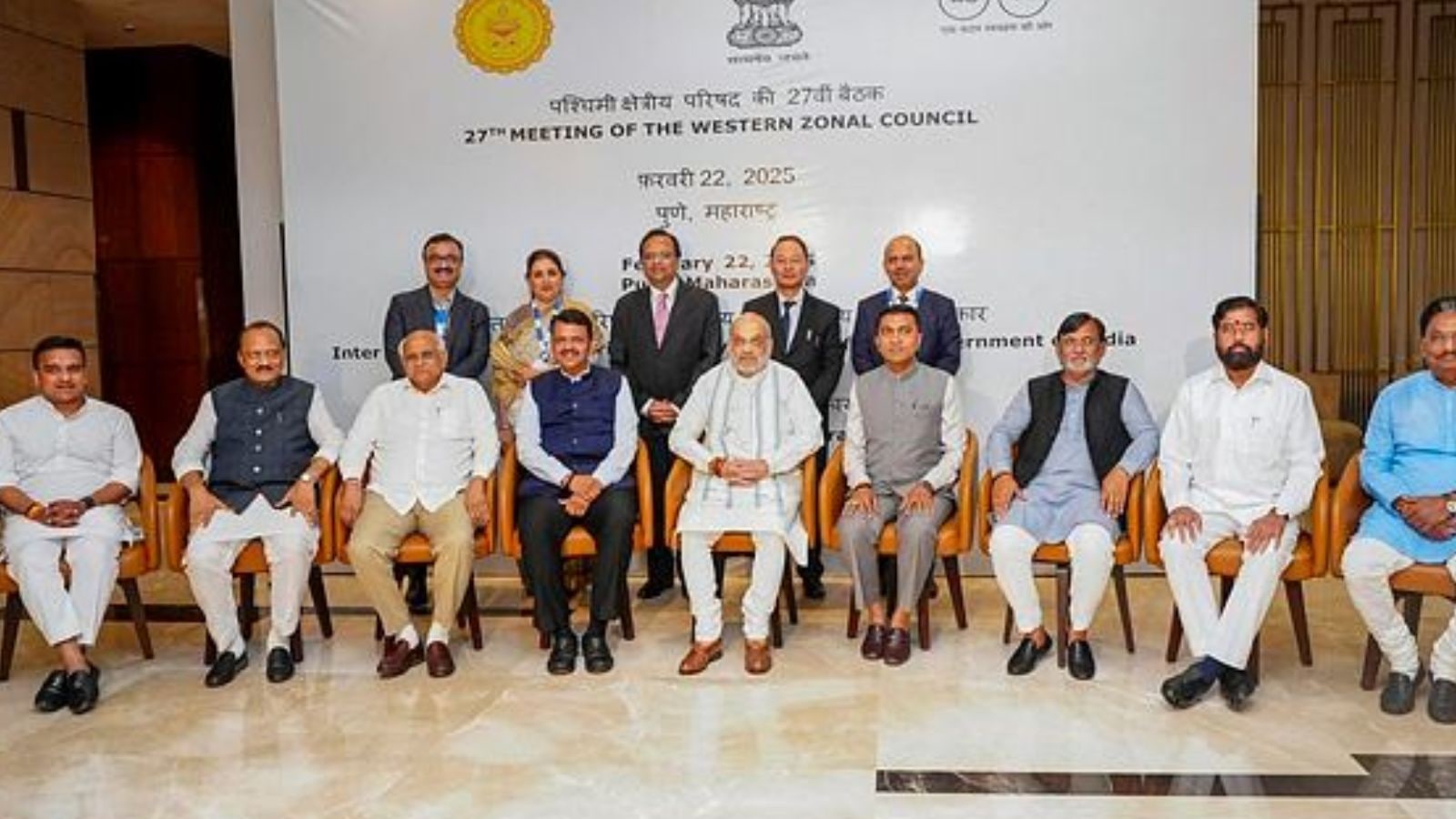27th Western Zonal Council Meeting
Union Home Minister Amit Shah led the 27th Western Zonal Council meeting in Pune, Maharashtra, on Saturday. The meeting included the Chief Ministers of Maharashtra, Gujarat, and Goa, the Administrator of Dadra and Nagar Haveli and Daman and Diu, and senior government officials from the state and central ministries. Zonal Councils remain vital for encouraging cooperative federalism in India. They facilitate dialogue between states, addressing issues of common interest and enhancing collaboration among regions.
Historical Context
The concept of Zonal Councils was proposed by Jawaharlal Nehru in 1956. This initiative aimed to counteract linguistic conflicts following the reorganisation of states. By grouping states into councils, Nehru sought to encourage cooperative governance. The States Reorganisation Act of 1956 formalised the establishment of five Zonal Councils.
Composition of Zonal Councils
- Each Zonal Council comprises specific states and union territories.
- The Northern Zonal Council includes Haryana, Himachal Pradesh, Jammu & Kashmir, Punjab, Rajasthan, Delhi, and Chandigarh.
- The Central Zonal Council consists of Chhattisgarh, Uttarakhand, Uttar Pradesh, and Madhya Pradesh.
- The Eastern Zonal Council encompasses Bihar, Sikkim, Jharkhand, Odisha, and West Bengal.
- The Western Zonal Council includes Goa, Gujarat, Maharashtra, and the Union Territories of Daman & Diu, and Dadra & Nagar Haveli.
- The Southern Zonal Council comprises Andhra Pradesh, Karnataka, Kerala, Tamil Nadu, and Puducherry.
- The North Eastern Council, established in 1972, includes Assam, Arunachal Pradesh, Manipur, Tripura, Mizoram, Meghalaya, and Nagaland.
- The Andaman and Nicobar Islands and Lakshadweep are not part of any Zonal Council. However, they are currently special guests in the Southern Zonal Council.
Leadership Structure
The Union Home Minister chairs all Zonal Councils. Each council has a rotating Vice-Chairman, typically the Chief Minister of a member state. This rotation occurs annually. Additionally, each council includes ministers from member states, representatives from union territories, and officials from the Planning Commission.
Functions and Roles
Zonal Councils serve as forums for resolving disputes between the Centre and states, and among states. They discuss economic planning, social issues, border disputes, and transportation matters. The councils promote regional cooperation, addressing shared interests and challenges. In recent years, the role of these councils has evolved from advisory to action-oriented platforms under the Modi government.
Growth of Zonal Council Meetings
- 140% increase in meetings: From 25 (2004-2014) to 61 (2014-2025), despite COVID-19 challenges.
- 170% increase in discussed topics: From 469 (2004-2014) to 1,541 (2014-2025).
- Threefold rise in resolved issues: From 448 (2004-2014) to 1,280 (2014-2025).
- The government aims for 100% completion of agenda targets in these meetings.
Importance of the Western Region in India’s Economy
- Contributes 25% of India’s GDP.
- 80-90% of industrial operations take place here.
- Accounts for over half of India’s global trade.
- Supports northern and central regions in international commerce.
- Infrastructure (ports, urban development) benefits states beyond the region (e.g., J&K, MP, Rajasthan).
Financial Inclusion Milestone
- Banking access: Nearly all villages have bank branches or postal banking within 5 km.
- New target: Reduce the distance to 3 km for improved financial accessibility.
Malnutrition and Public Health Concerns
- Despite being prosperous, malnutrition and stunting remain concerns in the Western states.
- Urged focused action from state governments to eradicate malnutrition.
- Preventive healthcare focus: Reducing dependence on medicines and hospitals.
- Addressing school dropout rates and improving education quality.
Boosting Domestic Pulse Production
- Reducing pulse imports and ensuring fair prices for farmers.
- A new mobile application allows farmers to sell produce directly at MSP.
- Urged states to promote the app and encourage farmer registrations.
Key Issues Discussed At Meeting
- State-specific topics: Land transfer, mining, fast-track rape case investigations (FTSC scheme), ERSS-112, railway projects, food safety.
- National issues: Urban planning, affordable housing, electricity supply, Nutrition Mission, school dropout reduction, Ayushman Bharat hospital participation, PACS strengthening.
- Best practices shared: Gujarat showcased supply chain automation for the public distribution system.
Outcomes and Future Actions
- States assured prompt action on all meeting suggestions.
- Focus on cooperative federalism and achieving 100% saturation of welfare schemes.
Impact on Federalism
The Zonal Councils play important role in India’s federal structure. They enhance cooperative federalism by facilitating dialogue and collaboration among states. This approach aims to ensure balanced socio-economic development across regions. The councils also help mitigate conflicts, encouraging a sense of unity among diverse linguistic and cultural groups.
Month: Current Affairs - February, 2025
Category: States Current Affairs








